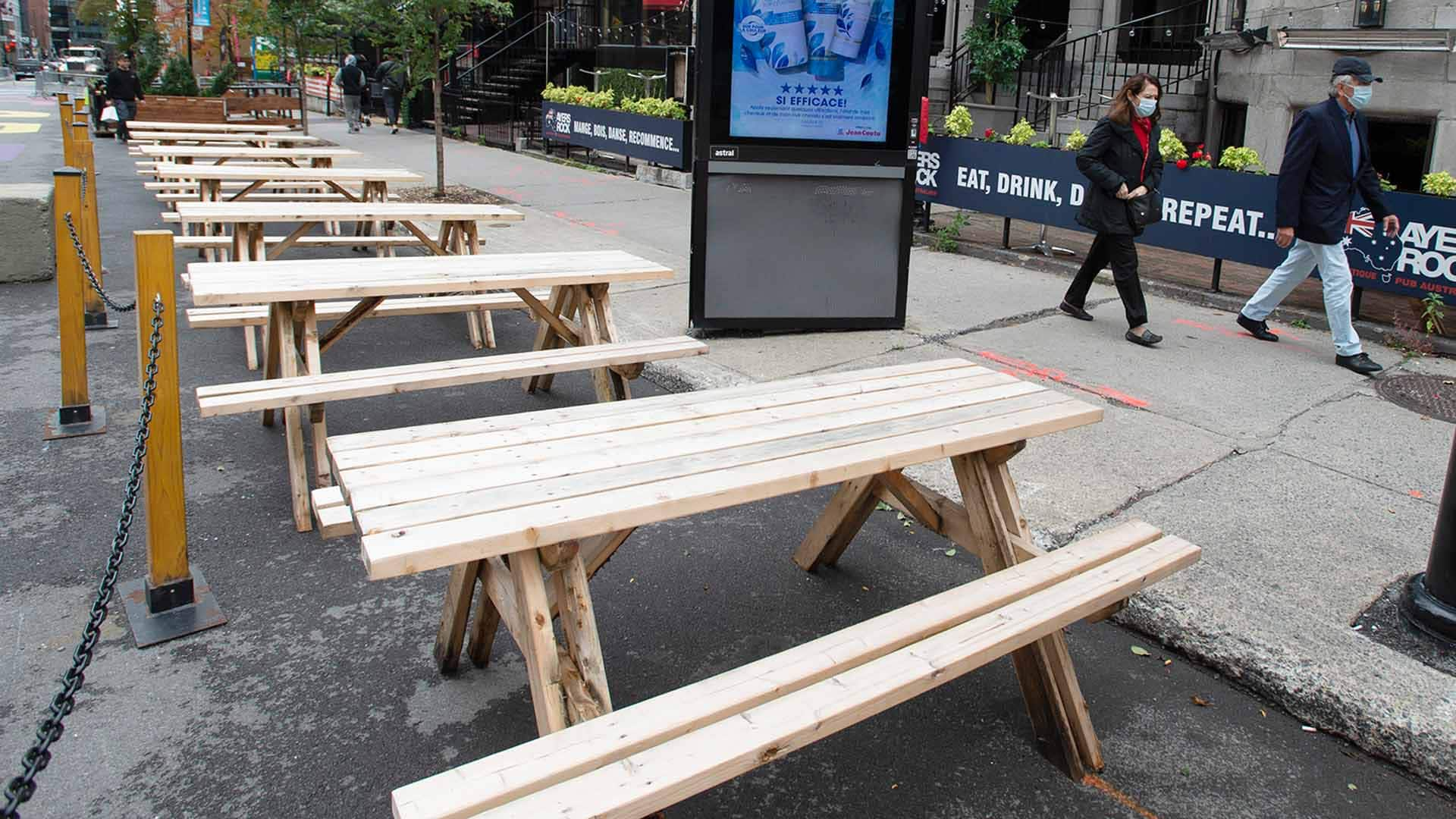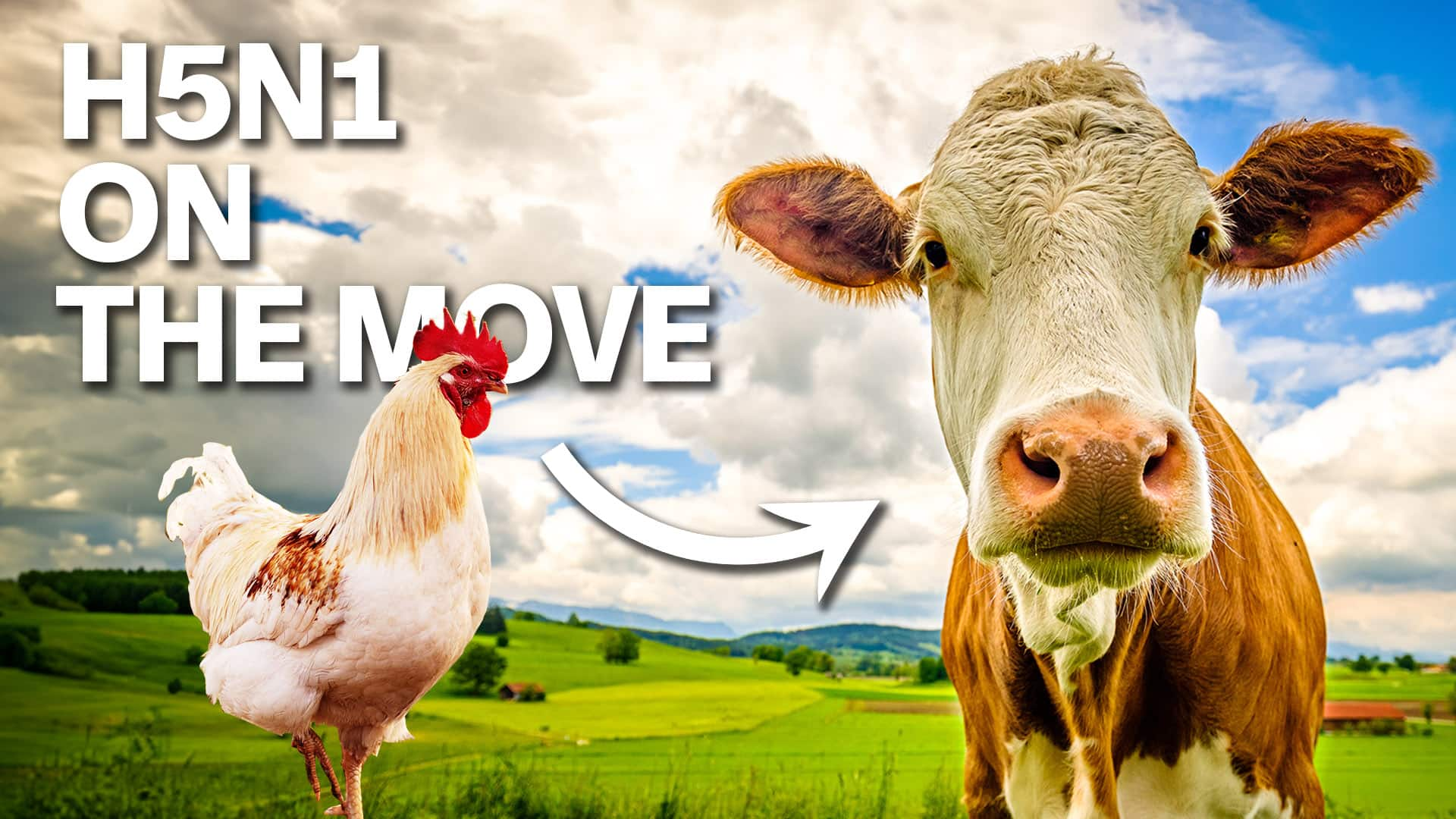Health
Thanksgiving and other gatherings: Your COVID-19 questions answered

|
|
We’re answering your questions about the pandemic. Send yours to COVID@cbc.ca, and we’ll answer as many as we can. We publish a selection of answers online and also put some questions to the experts during The National and on CBC News Network. So far, we’ve received more than 54,000 emails from all corners of the country.
As COVID-19 cases rise in many provinces, Canadians are wondering how to celebrate Thanksgiving or hold other gatherings safely this fall. Are small dinner parties OK? Can you still have get-togethers outdoors? What if you wear masks and physically distance?
Here’s what the experts say.
Can we still celebrate Thanksgiving?
“It’s all too likely we won’t be gathering for Thanksgiving, said Prime Minister Justin Trudeau while announcing that British Columbia, Ontario and Quebec are in the second wave of COVID-19 on Sept. 23. But he suggested Christmas might still be on the table if we rein in gatherings for now. A day later, Quebec Health Minister Christian Dubé told Quebecers to cancel Thanksgiving plans.
Officials and medical experts have been emphasizing that the large, extended family gatherings with family members from all over are not a good idea this year.
But some say celebrations can still happen — they just need to be different to be safe.
“Now is the time to have your small, local nuclear family together and connect through Zoom, connect through virtual means with the rest of your family in other parts of the country,” said Dr. Bonnie Henry, B.C.’s provincial health officer on Sept. 28.
B.C.’s provincial health officer says we can give thanks through virtual gatherings. 1:09
What about university students? Should they get tested before coming home for the holidays?
There have been COVID-19 outbreaks at some universities (including institutions in Alberta, Ontario and Quebec). And at least one medical expert said it’s probably best if students studying in other cities don’t go home for Thanksgiving.
“It’s a hard call,” said Dr. Matthew Oughton, an infectious disease specialist at McGill University on CBC’s Cross Country Checkup.
He said it would be better for families to send care packages to their kids at their schools instead.
Dr. Suzy Hota, an infectious disease specialist at the University Health Network and the University of Toronto, told CBC’s The National that there are two reasons not to rely on testing right now:
- Many provinces have seen a surge in demand for tests and trying to reserve testing for people with symptoms who have definitely been exposed to COVID-19 or are at high risk due to their occupation.
- Testing isn’t always accurate, and whether results are accurate depend heavily on the timing.
She added, “An individual could be incubating a virus, test negative, feel reassured by that and then come home and visit but then go on and develop symptoms and go on to infect others.”


Doctors answer questions about COVID-19 including whether young people are less likely to get severely sick from COVID-19. 6:03
But can I still have a small dinner party?
Dr. Isaac Bogoch, an infectious disease physician at the University of Toronto and the University Health Network, recommended against it.
“I think if you don’t live under that roof, you shouldn’t go into that house,” he told The National.
In fact, in the Montreal, Quebec City and Chaudière-Appalaches regions of Quebec, legally you can’t visit other people’s homes between Oct. 1 and Oct. 28 due to new provincial rules imposed as COVID-19 cases soar in those regions. Police have also been given legal tools to enforce those rules, and violators can get $1,000 fines.
While not recommended, legally small gatherings in homes is still allowed in most parts of Canada. But you should check how many people are allowed, as some regions, including Winnipeg and Ontario’s Toronto, Ottawa and Peel Region, have recently restricted gathering sizes.


An infectious disease specialist answers questions about the COVID-19 pandemic including if targeted restrictions will be enough to keep cases down. 4:04
Is it time to rethink our bubble?
Dr. Michael Gardam, medical director of infection prevention and control at Women’s College Hospital in Toronto, said the idea still holds. He recommended people “get back to our bubbles and not see people outside of our bubbles.”
Bogoch suggested going a step further. “I think at this point in Canada’s epidemic, the best thing to do is keep it as small as possible and really restrict our social gatherings to as few people as possible.”
But some experts have already warned that for many of us, our bubbles have already burst since more of us are returning to school and work, and it’s not a perfect model for this point in the pandemic.
In fact, health officials said bubbles may have contributed to a recent surge in cases in Toronto. People in that city have now been asked to limit all interactions with anyone outside their immediate household — even those who were previously in their bubble. You can read more about that here.
That said, advice around bubbling can vary according to region, so it’s best to check with local health authorities for the guidelines where you live.


Targeting businesses to reduce transmission of the coronavirus may not be effective enough, says Dr. Michael Gardam, an infectious disease specialist at Women’s College Hospital. ‘A lot of the spread is in private gatherings,’ he said. 1:56
If we do have a get-together, is outdoors safer?
Yes, Oughton said. Research shows the risk of transmission is lower outdoors, likely because of better ventilation and because it’s easier to physically distance.
“If you have the luxury of space and if the weather co-operates, then doing it [gathering] outdoors or at least as much of it outdoors as you can would certainly be preferable,” Oughton said.


COVID-19 has many people wondering just how they’re going to celebrate Thanksgiving this year. Officials and health experts are weighing in, sometimes with advice for their specific city or province. 4:08
If I do have a gathering, what precautions should I take?
While gatherings are generally discouraged by officials and experts at this time, Oughton recommends maintaining physical distancing, wearing masks if you’re in a place where physical distancing is unpredictable or impossible and washing your hands frequently. He said opening windows to get a cross breeze can also help improve air circulation but doesn’t replace other measures.
In a previous article, medical experts also suggested avoiding common serving bowls and warned that the risk also increases when you:
- Invite more people.
- Invite people from more households.
- Spend longer periods of time in close contact.


Will an air purifier make gathering indoors safer?
Pat D. of Toronto wanted to know if adding an “expensive” air purifier would make it safer for potential guests to attend Thanksgiving and Christmas dinners.
In theory, they should help, as they pull air through filters to trap viruses and could reduce transmission from small droplets and aerosols, Dr. Zain Chagla, medical director of infection control at St. Joseph’s Healthcare in Hamilton, said in an email.
But there’s no hard evidence yet that they do, as no randomized controlled trials have been done to test their effectiveness against the coronavirus that causes COVID-19, University of Ottawa Raywat Deonandan previously noted.
If air purifiers do help, “they are by no means perfect,” Chagla said.
He said that on airplanes where similar systems are in place, people have still been infected, especially when masks aren’t used. And air purifiers only have an impact if you’re in the area near them.
“They also need to be working perfectly and may give a false sense of security,” he said. “Bottom line — it’s a whole lot cheaper and easier to a) not do the gathering [or] b) throw on a few more layers — much cheaper than an air purifier — and do the gathering outdoors.”
And, of course, experts said air purifiers are no substitute for other measures, such as physical distancing and masking.


Infectious disease specialists answer questions about the COVID-19 pandemic including if daily infection numbers are the right statistic to focus on and whether people need to re-evaluate the risk of activities as case numbers rise. 6:59
Is it OK to visit relatives in areas where the incidence of COVID-19 is low?
Bogoch warned against complacency in areas without current outbreaks.
“This is a very contagious illness. It doesn’t stay restricted to one age group for long. It doesn’t stay restricted to one geographic location for long.”
Oughton advised against visitors travelling between areas with and without active COVID-19 outbreaks, such as city dwellers visiting rural areas where access to health care may be more limited.
“They’re worried about being overrun by a sudden surge in cases.”
He suggested sending wishes to relatives by phone or over the internet and waiting until things are more under control before going for a visit.


Red zone restrictions are in effect in three Quebec areas, including Montreal and Quebec City, meaning bars are closed and restaurants no longer have indoor dining for the next 28 days as the province tries to manage a spike of COVID-19 cases. 2:01
Is it still OK to eat at a restaurant?
In Quebec’s red zones, dining in at restaurants is temporarily banned, but it’s still allowed everywhere else.
That said, indoor restaurants are considered by the U.S. Centers for Disease Control and Prevention as high-risk settings and may be helping drive transmission, University of Toronto epidemiologist Dr. David Fisman noted on CBC’s The Dose.
“We know [this virus] likes closed, close and crowded spaces,” he said. Not only are restaurants places where you’re sitting close to other people, he said, but you’re often talking, you’re interacting with a stranger (the server), and you’re not wearing a mask because you can’t while eating.
He suggested that dining on a restaurant patio is much safer than indoors.
When evaluating the risk of eating at a restaurant, you should bear in mind that “everyone’s risk is not the same,” said Chagla on The National.
Older people are at higher risk of complications, so both older people and those in contact with them “should really think about how they are engaging with society and what the downstream effects of that are,” he said.
He also suggested that people keep their eye on the progress of the epidemic in their own community.
As the case numbers rise, “the risk of someone [with the virus] coming into those establishments does go up, too.”
Source:- CBC.ca
Health
New technology to advance women’s cancer care at Southlake


|
|
NEWS RELEASE
SOUTHLAKE REGIONAL HEALTH CENTRE
**************************
This Cancer Awareness Month, Southlake is adding advanced technologies to detect and treat breast cancer and other women’s cancers thanks to generous community donor support, most recently through the HERE is Where Cancer Meets its Match campaign. New cancer care technology, including new mammography machines, the MyoSure System and the MOLLI 2® System will make a measurable impact in diagnosing and treating women’s cancers in the communities Southlake serves.
Southlake is installing three new mammography machines to expand its breast cancer screening program to 1,500 more women each year. Two of these machines have new biopsy capabilities that will reduce the number of cancelled exams due to equipment failure, ensuring timely care for women. Women ages 40 to 49 years old will be able to self-refer for publicly funded mammograms through the Ontario Breast Screening Program starting this fall.
“Early detection is critical when treating breast cancer and other women’s cancers,” said Lorrie Reynolds, Director, Regional Cancer Program at Southlake. “We treat more than 1,700 breast cancer patients at Southlake every year. By adding advanced technology, like the new mammography machines, we’re ensuring women have the best experience at Southlake.”
Southlake is also introducing the MyoSure System, an innovative technology that can help detect female reproductive cancers. Damaged tissue in a woman’s uterus such as fibroids and polyps can now be removed in a precise, minimally invasive procedure that leaves the rest of the uterus intact. This will improve the overall patient experience by supporting faster recovery, reducing the risk of infection and giving more women the option to have children. An estimated 200 women per year will benefit from the MyoSure System.
The new mammography machines and the MyoSure System build on Southlake’s recent investment in the MOLLI 2® System, a made-in-Canada wire-free breast localization technology. This technology is considerably less invasive and more accurate when compared to wire-guided localization, resulting in a better patient experience and improved cosmetic outcomes. More than 200 women each year will benefit from this innovative medical device as they are treated for breast cancer at Southlake.
“As a clinician caring for women with cancer in our community, I’m incredibly proud of the work Southlake is doing to advance women’s health and improve patient experiences,” said Sara Temple, MD, Surgical Oncologist and Chief of Surgery at Southlake. “Women who visit Southlake can be confident that they are receiving leading edge care, close to home when they need it most.”
The World Health Organization anticipates a 77 per cent increase in cancer diagnoses by 2050. Southlake serves some of the fastest growing communities in Canada and anticipates that the number of patients requiring cancer care will grow. By investing in new technology, Southlake is ensuring that women in the communities it serves have access to leading edge cancer care. All of these investments were funded with support from community donors who generously gave to Southlake to support investments into women’s health at the hospital.
“The generosity of our donor community and the impact they have made for women receiving cancer diagnosis and treatment at Southlake is something we can all take great pride in,” said Jennifer Ritter, President and CEO of Southlake Foundation. “From our Women’s Health Initiative donors supporting new mammography machines, to the Ladies in Philanthropy for Southlake funding the MOLLI 2 System, to our long-standing partners The Edge Benefits and Pheasant Run Golf Club enabling the introduction of MyoSure System through their joint annual charity golf tournament, we are incredibly lucky to share a vision of access to exceptional care for everyone who depends on Southlake when they need us most. Thank you, to every donor who contributed to these important upgrades to care for women.”
Southlake Foundation’s HERE is Where Cancer Meets its Match campaign supports the Stronach Regional Cancer Centre at Southlake. For more information or to make a donation, visit: southlake.ca/HERE.




Health
Pasteurized milk includes remnants of H5N1 bird flu, U.S. officials say


|
|
The U.S. Food and Drug Administration says that samples of pasteurized milk have tested positive for remnants of the bird flu virus that has infected dairy cows.
The agency stressed that the material is inactivated and that the findings “do not represent actual virus that may be a risk to consumers.” Officials added that they’re continuing to study the issue.
“To date, we have seen nothing that would change our assessment that the commercial milk supply is safe,” the FDA said in a statement on Tuesday.
The announcement comes nearly a month after an avian influenza virus that has sickened millions of wild and commercial birds in recent years was detected in dairy cows in at least eight states. The Agriculture Department (USDA) says 33 herds have been affected to date.
FDA officials didn’t indicate how many samples they tested or where they were obtained. The agency has been evaluating milk during processing and from grocery stores, officials said. Results of additional tests are expected in “the next few days to weeks.”
WATCH | Bird flu spread in U.S. cows:
For the first time ever, avian influenza, or H5N1 bird flu, was detected in roughly a dozen dairy cow herds across the U.S. About That producer Lauren Bird explores why scientists and public health officials are concerned about the cross-species transmission and whether humans are now at higher risk.
The polymerase chain reaction (PCR) lab test the FDA used would have detected viral genetic material even after live virus was killed by pasteurization, or heat treatment, said Lee-Ann Jaykus, an emeritus food microbiologist and virologist at North Carolina State University
“There is no evidence to date that this is infectious virus, and the FDA is following up on that,” Jaykus said.
Officials with the FDA and the USDA had previously said milk from affected cattle did not enter the commercial supply. Milk from sick animals is supposed to be diverted and destroyed. Federal regulations require milk that enters interstate commerce to be pasteurized.
Tests for viable virus underway, agency says
Because the detection of the bird flu virus known as Type A H5N1 in dairy cattle is new and the situation is evolving, no studies on the effects of pasteurization on the virus have been completed, FDA officials said. But past research shows that pasteurization is “very likely” to inactivate heat-sensitive viruses like H5N1, the agency added.
The agency said it has been evaluating milk from affected animals, in the processing system and on the shelves. It said it is completing a large, representative national sample to understand the extent of the findings.
Matt Herrick, a spokesperson for the International Dairy Foods Association, said that time and temperature regulations for pasteurization ensure that the commercial U.S. milk supply is safe. Remnants of the virus “have zero impact on human health,” he wrote in an email.
Scientists confirmed the H5N1 virus in dairy cows in March after weeks of reports that cows in Texas were suffering from a mysterious malady. The cows were lethargic and saw a dramatic reduction in milk production. Although the H5N1 virus is lethal to commercial poultry, most infected cattle seem to recover within two weeks, experts said.
To date, two people in the U.S. have been infected with bird flu. A Texas dairy worker who was in close contact with an infected cow recently developed a mild eye infection and has recovered. In 2022, a prison inmate in a work program caught it while killing infected birds at a Colorado poultry farm. His only symptom was fatigue, and he recovered.




Health
Remnants of bird flu virus found in pasteurized milk, FDA says – Hamilton Spectator


/* OOVVUU Targeting */
const path = ‘/life’;
const siteName = ‘thespec.com’;
let domain = ‘thestar.com’;
if (siteName === ‘thestar.com’)
domain = ‘thestar.com’;
else if (siteName === ‘niagarafallsreview.ca’)
domain = ‘niagara_falls_review’;
else if (siteName === ‘stcatharinesstandard.ca’)
domain = ‘st_catharines_standard’;
else if (siteName === ‘thepeterboroughexaminer.com’)
domain = ‘the_peterborough_examiner’;
else if (siteName === ‘therecord.com’)
domain = ‘the_record’;
else if (siteName === ‘thespec.com’)
domain = ‘the_spec’;
else if (siteName === ‘wellandtribune.ca’)
domain = ‘welland_tribune’;
else if (siteName === ‘bramptonguardian.com’)
domain = ‘brampton_guardian’;
else if (siteName === ‘caledonenterprise.com’)
domain = ‘caledon_enterprise’;
else if (siteName === ‘cambridgetimes.ca’)
domain = ‘cambridge_times’;
else if (siteName === ‘durhamregion.com’)
domain = ‘durham_region’;
else if (siteName === ‘guelphmercury.com’)
domain = ‘guelph_mercury’;
else if (siteName === ‘insidehalton.com’)
domain = ‘inside_halton’;
else if (siteName === ‘insideottawavalley.com’)
domain = ‘inside_ottawa_valley’;
else if (siteName === ‘mississauga.com’)
domain = ‘mississauga’;
else if (siteName === ‘muskokaregion.com’)
domain = ‘muskoka_region’;
else if (siteName === ‘newhamburgindependent.ca’)
domain = ‘new_hamburg_independent’;
else if (siteName === ‘niagarathisweek.com’)
domain = ‘niagara_this_week’;
else if (siteName === ‘northbaynipissing.com’)
domain = ‘north_bay_nipissing’;
else if (siteName === ‘northumberlandnews.com’)
domain = ‘northumberland_news’;
else if (siteName === ‘orangeville.com’)
domain = ‘orangeville’;
else if (siteName === ‘ourwindsor.ca’)
domain = ‘our_windsor’;
else if (siteName === ‘parrysound.com’)
domain = ‘parrysound’;
else if (siteName === ‘simcoe.com’)
domain = ‘simcoe’;
else if (siteName === ‘theifp.ca’)
domain = ‘the_ifp’;
else if (siteName === ‘waterloochronicle.ca’)
domain = ‘waterloo_chronicle’;
else if (siteName === ‘yorkregion.com’)
domain = ‘york_region’;
let sectionTag = ”;
try
if (domain === ‘thestar.com’ && path.indexOf(‘wires/’) = 0)
sectionTag = ‘/business’;
else if (path.indexOf(‘/autos’) >= 0)
sectionTag = ‘/autos’;
else if (path.indexOf(‘/entertainment’) >= 0)
sectionTag = ‘/entertainment’;
else if (path.indexOf(‘/life’) >= 0)
sectionTag = ‘/life’;
else if (path.indexOf(‘/news’) >= 0)
sectionTag = ‘/news’;
else if (path.indexOf(‘/politics’) >= 0)
sectionTag = ‘/politics’;
else if (path.indexOf(‘/sports’) >= 0)
sectionTag = ‘/sports’;
else if (path.indexOf(‘/opinion’) >= 0)
sectionTag = ‘/opinion’;
} catch (ex)
const descriptionUrl = ‘window.location.href’;
const vid = ‘mediainfo.reference_id’;
const cmsId = ‘2665777’;
let url = `https://pubads.g.doubleclick.net/gampad/ads?iu=/58580620/$domain/video/oovvuu$sectionTag&description_url=$descriptionUrl&vid=$vid&cmsid=$cmsId&tfcd=0&npa=0&sz=640×480&ad_rule=0&gdfp_req=1&output=vast&unviewed_position_start=1&env=vp&impl=s&correlator=`;
url = url.split(‘ ‘).join(”);
window.oovvuuReplacementAdServerURL = url;
The U.S. Food and Drug Administration said Tuesday that samples of pasteurized milk had tested positive for remnants of the bird flu virus that has infected dairy cows.
The agency stressed that the material is inactivated and that the findings “do not represent actual virus that may be a risk to consumers.” Officials added that they’re continuing to study the issue.
-



 Health16 hours ago
Health16 hours agoRemnants of bird flu virus found in pasteurized milk, FDA says
-
Art22 hours ago
Mayor's youth advisory council seeks submissions for art gala – SooToday
-



 Health20 hours ago
Health20 hours agoBird flu virus found in grocery milk as officials say supply still safe
-



 Investment20 hours ago
Investment20 hours agoTaxes should not wag the tail of the investment dog, but that’s what Trudeau wants
-
News20 hours ago
Peel police chief met Sri Lankan officer a court says ‘participated’ in torture – Global News
-
Media15 hours ago
Vaughn Palmer: B.C. premier gives social media giants another chance
-
Art21 hours ago
An exhibition with a cause: Montreal's 'Art by the Water' celebrates 15 years – CityNews Montreal
-
News12 hours ago
Amid concerns over 'collateral damage' Trudeau, Freeland defend capital gains tax change – CTV News




